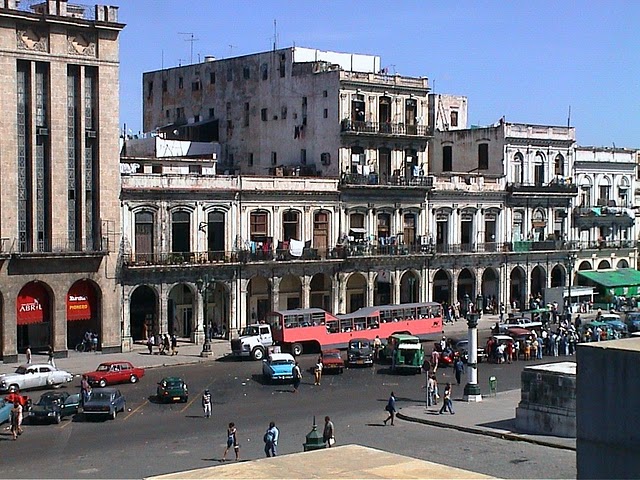
There are dates that leave their mark forever. The attack on the Twin Towers of New York is one of them. We probably all remember what we were doing at the time. How did we learn about it? What did we experieince?
September 11, 2001 appeared to be a Tuesday like any other in Havana. Dawn had come without clouds and with a full sun. At 8:45 a.m., when the first aircraft crashed into the Word Trade Center, I was still sleeping.
Around 9:20 a.m., I began my routine. Reviewing some notes to send to Encuentro en la Red (Encounter on the Web). Combing through the news on Cuban radio. In the afternoon, listening to the news from the BBC, Radio Exterior of Spain, Radio France International or Voice of America. Then going out and talking with people on the street.
I remember that Radio Reloj was going on and on about the state of the economy on the island. About 10:00 I received the newspapers, Granma and Juventud Rebelde. With more of the same. Briefly it was recalled that September 11 was the 28-year anniversary of the Pinochet coup in Chile.
I was alone in the house. My sister Tamila was working. My niece Yania was in school. My mother Tania Quintero, a freelance journalist, had gone early to “forage” for food in several agromercados.
Around 11:00 a.m., a neighbor in the hallway of my building shouted: “It looks like there was a huge accident in the United States; they’re showing it on Channel 6”. I connected the TV. National television, something unheard of, had linked to CNN, and in the background, two reporters commented on the news.
The images were horrifying. Again and again they showed the airplane hitting the structure of concrete, steel and glass, like a knife going into a stick of butter.
The telephone began to ring insistently. Friends and relatives were stunned. We could not believe what we were seeing. Those with relatives in Miami were trying desperately to call them for more information. The phone lines with Florida were jammed.
I still have on my retina the powerful images of desperate people who threw themselves to death from the top of the towers. When the buildings collapsed, leaving a huge cloud of dust and soot, and a chilling roar that the people of New York would never forget, we who followed the news knew that the world had changed.
In the space of the afternoon we knew that a plane had hit the Pentagon. A fourth plane crashed in a Pennsylvania forest, thanks to the courage of the passengers, who by a phone call knew what had happened in the Big Apple.
That night, Fidel Castro spoke in the Sports Coliseum to numerous medical students. The Cuban government authorized American planes to fly over Cuba and use the island’s airports and air corridors. The sole comandante offered medical aid.
The United States was under a terrorist attack. We all knew intuitively what would come next. War. In those days, a large part of world was in solidarity with the northern nation. It did not know how to capitalize on that support.
Perhaps the best option was not planes and smart bombs buried in rubble, caves and hideouts of the Taliban in Afghanistan. I am one of those who think that an operation of special services, operating with close international cooperation, would have had better results.
But the Untied States wanted revenge. Some 6,000 people were injured and about 3,000 people lost their lives. Many families couldn’t recover their remains.
War will never be a good option. Ten years after the terrorist attack on the Twin Towers, the victims total more than one million dead and wounded. The world has not been made more secure. There are fewer dictators and rogue leaders, but democracy at gunpoint has not brought order in Afghanistan or Iraq. Quite the contrary.
Thousands of U.S. troops are bogged down in those nations. Almost a decade after the attack on New York, it took a special forces operation to hunt down and kill Osama Bin Laden.
Al Qaeda is still alive. The autocrats and tyrants continue trampling on the basic freedoms of their peoples. It’s good that the United States and other nations demand democracy and respect for human rights in countries where they are violated.
But not from the cockpit of an F-16. Undoubtedly, blood, devastation and fire are rather strange ways to learn lessons on democracy.
Translated by Regina Anavy
September 9 2011
